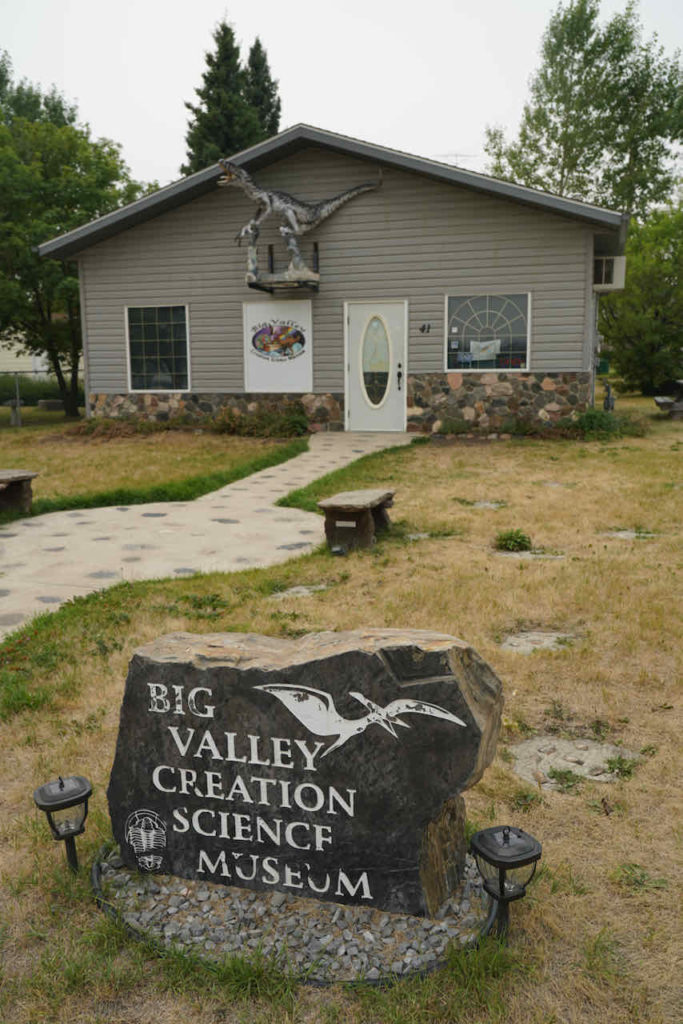A couple of weeks ago we traveled around Southern Alberta visiting out of the way museums, including the Creation Science Museum in Big Valley. To visit we had to book over the phone and we were given an intense and argumentative tour of the small museum. There is much to be said about the arguments I had with the guide, who was well informed, experienced at arguing, and passionate about his beliefs. One of the things that struck me was how his belief system was a network of interlocking and supporting conspiracy theories including:
- A belief that the universe was created by God about 7,000 to 10,000 years ago as set out by Genesis. Much of the museum was dedicated to debunking evolutionary science as speculation in order to set up the “truth.”
- There is a group of Illuminati who control the world. I think this is connected to the New World Order, but I wasn’t following the argument.
- Noah’s Arc is on mount Ararat in Turkey, but the Turkish government is preventing access.
- The apocalypse is coming soon.
- Aliens are actually demons visiting earth.
I probably didn’t get all the network of theories right. There was a final exhibit that traced the Windsors back to Adam and Eve which was supposed to mean something. What interested me after the encounter was the passion of conspiracy. What is it that is so attractive about these theories? Why do they go together? There is a lot of good stuff out there including 7 Insights From Interviewing Conspiracy Theory Believers and Understanding Conspiracy Theories. To summarize,
- Believing in conspiracies provides community and empowerment. If you are serious enough about them it can also provide an identity.
- Conspiracies explain the world more thoroughly and simply. They often present simple answers – ie. that there is a small hidden group running things. Such answers are more satisfying than “its complicated.”
- Conspiracies present themselves as truth in a postmodern age that makes it difficult to know what to believe. They are also imaginative and often remarkably thorough.
- The theories have similar patterns of ideas which makes them fit well with each other. If you have “researched” one then you will probably believe others.
- Believing in a conspiracy makes you an alternative type of expert who is “woke” to the truth about the world. Such expertise is a short cut around the expertise that comes from getting an education which can be rather time consuming.
- Most conspiracies include explanations about why the theory is not believed by experts. As an added bonus, there is also a story of persecution that lets you take on the identity of noble victim.
- To know a truth that most others don’t confers power and exceptionalism on you. You understand where others don’t. It also is a sign of rugged freedom of thought as you have not been lulled into following the herd.
- Most of these theories do not call for immediate action, after all, there is nothing you can do when the world is controlled by the Illuminati. In some cases they relieve one of the need to act; no need to worry about climate change if it is fake news. That said, some conspiracies do motivate some people to terrible acts (think about how incel theory has inspired some) and they do provide theories of agency.
By contrast, the theories I believe in are tentative, dependent on trusting others, without heroic opportunities, incomplete and often contradictory. They do, however, call for action, even solidarity, but with humility.
